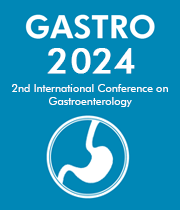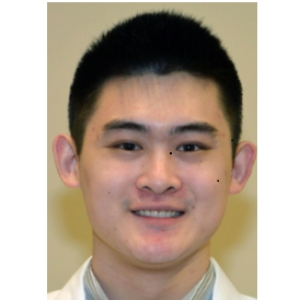Title : A case of gastric adenocarcinoma in the remnant stomach after Roux-en-Y gastric bypass
Abstract:
Gastric cancer is the 5th most common type of malignancy world-wide. Obesity has been associated with an increased risk of gastric cancer and Roux-en-Y is the most commonly performed surgical weight-loss procedure in the US. Gastric adenocarcinoma in the remnant stomach after Roux-en-Y is rare, with only a few cases reported in literature. We present a case of a gastric adenocarcinoma in the excluded stomach, 20 years after gastric bypass surgery.
A 50-year-old woman with a remote history of breast cancer and Roux-en-Y gastric bypass surgery who presented with five weeks of nausea, vomiting, constipation, abdominal pain and significant weight loss with inability to tolerate solid food. She developed ascites and bilateral pleural effusions. Thoracentesis and paracentesis showed non-cancerous cells. Her abdomen was globose, soft and massless with diffuse tenderness to palpation. Diagnostic laparoscopy and intraoperative esophagogastroduodenoscopy revealed intact post Roux-en-Y anatomy and no obvious cause for her symptoms. The procedure showed extensive peritoneal adhesions and diffuse small bowel inflammation. Spontaneous bacterial peritoniti s secondary to extensive adhesions and inflammation was considered but her symptoms continued despite appropriate treatment.
Subsequent CT abdomen revealed diffuse peritoneal carcinomatosis. Given her breast cancer history, there was concern for ovarian malignancy but transvaginal ultrasound revealed no adnexal masses. Her tumor markers CEA and CA-125 were elevated. Double balloon endoscopy was performed to evaluate for malignancy of a different origin and revealed an ulcerated pylorus as well as irregular appearing mucosa in the remnant stomach. Biopsies taken revealed poorly differentiated gastric adenocarcinoma, diagnosed as stage IV gastric adenocarcinoma with diffuse peritoneal carcinomatosis. Her symptoms remained intractable. She was transferred to an inpatient hospice facility closer to her home.
Although the development of cancer in the remnant stomach after gastric bypass is rare, it is important to consider the possibility pa1ticularly in patients with concerning symptoms such as extreme weight loss and constant abdominal pain. As more cases of post RYGB malignancies are reported, further research is needed to clarify the association between gastric bypass and stomach cancer to keep potential bypass patients aware of
all potential complications.
Objective:
-
To raise awareness of the incidence of gastrointestinal cancers after gastric bypass surgery
-
To show the clinical course of late-stage gastric cancer in the setting of clinically complicating factors
-
To demonstrate the importance of full diagnostic work-up of symptoms concerning for malignancy
-
To highlight a serious yet underscreened complication of gastric bypass surgery
-
To identify risk factors that may warrant gastric cancer screening



